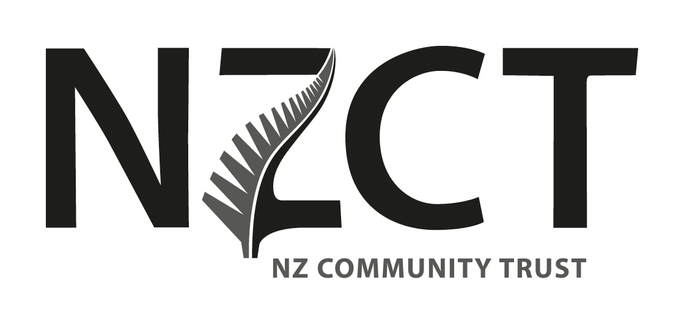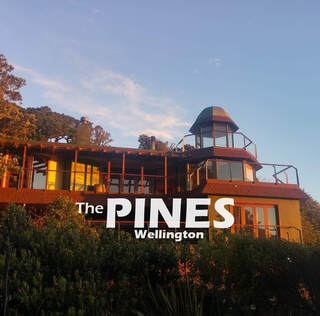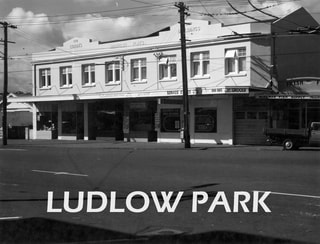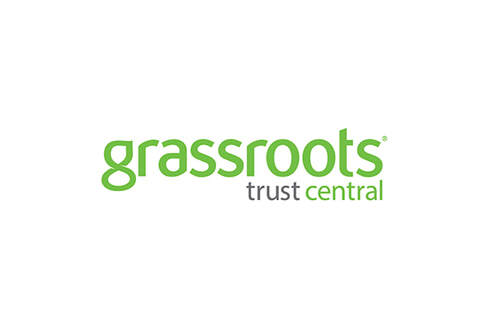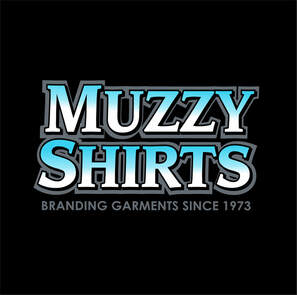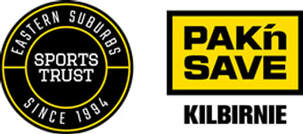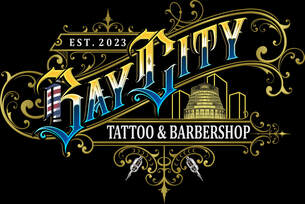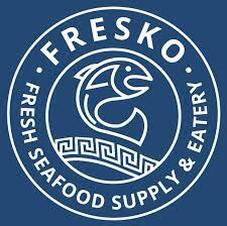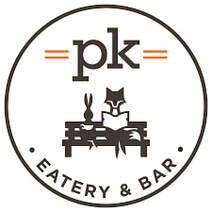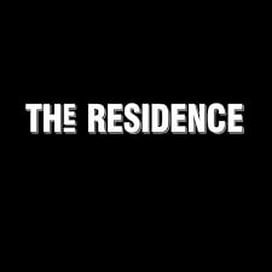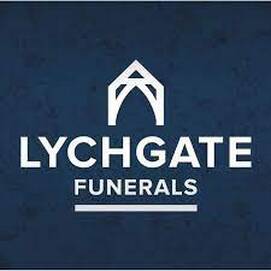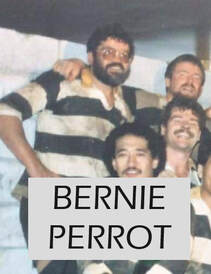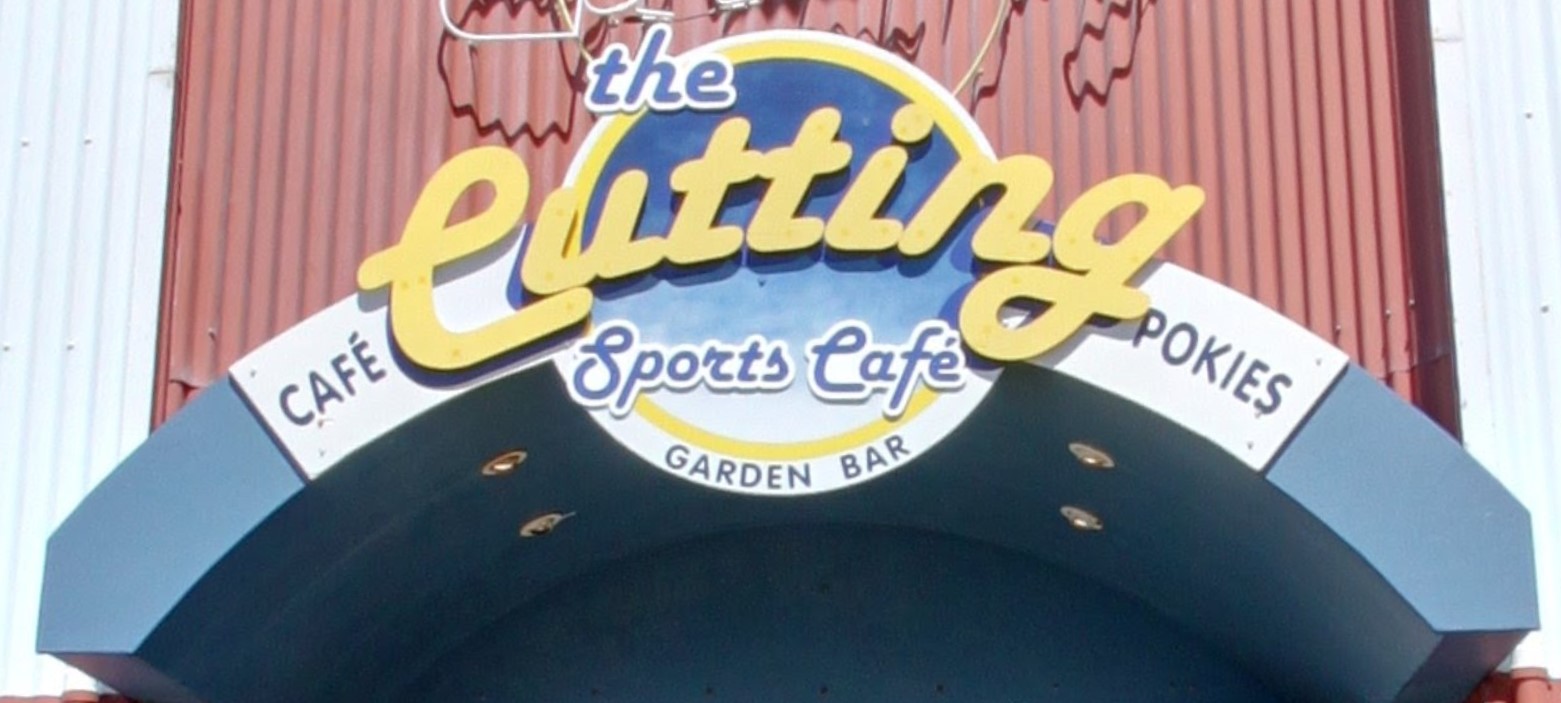The History OF ORIES
February 28, 1888
A notice appears on the notice board in the Oriental Boating Club shed jutting out into Oriental Bay .
A letter repeating the message is sent at the same time to prospective members asking them to be at the meeting. As it happens the meeting is postponed till Wednesday March 7. By then 17 men had affixed their names to another notice asking for names of those interested in forming a football club.
Thirteen men attend that first meeting in the Oriental Boating Club's shed and though very little business was conducted – apart from the appointment of a working Committee and the passing of a vote of thanks to Mr G S Hill for calling them together – they are unanimous in one thing: to form a rugby club. These thirteen formed the first Committee of the Oriental Football Club.
W.R Hill (Chairman), G Read, W Pearman , E Prince, G S Hill, D McCorquodale, A Smith, A Thomas, J Tringham, A Glover, J Muir, H Thomas, A Hill
March 9, 1888
A letter is sent to likely players, inviting them to attend a meeting the following Wednesday night. The letter restates the object of the meeting and adds:
“Should it be decided to form the club, the election of officers
will the take place and the necessary arrangements will be made
to make the club's name popular on the football field”
In a 1963 article, The Dominion newspaper captured the affection Wellington rugby followers hold for the Oriental club. The article stated ‘Few rugby clubs do firmly and consistently hold a place in the public affection as Oriental. From the point of view of Jubilee Cups won and other tangible rewards the ‘Ories' have not been the most successful playing club in Wellington championship history – far from it. But the club has an intangible character which makes it a favourite with followers of the sport no matter what their first club allegiance is'
The later amalgamated Oriental – Rongotai Football Club is a club noted as a tenacious survivor. The original Oriental club was founded in 1888 by an early pioneer of Wellington sport, Gibby Hill. The club was actually named after Hill's pleasure boat, The Oriental. Ories was a club name synonymous with white knuckle promotion – relegation competition fixtures. Unlike Petone, Ories is not noted for winning Jubilee Cups outright. It was noted for its irritating ability to spring an upset at any time over more favoured opposition.
As the fifth club established in Wellington in 1888, Ories has seen many others come and go. In 1943-44 Poneke and Oriental combined forces to win the Jubilee Cup alternately wearing Ories jerseys one week and Poneke the next.
The Ories spirit was typified by its 1913 All Black Charlie Gillespie, the World War One MC and farrier-sergeant who fought at Gallipoli, where he was commissioned in the field. Gillespie was subsequently severely gassed and wounded at Passchendaele. Following a distinguished career in the New Zealand peacetime Army before retiring in 1938 Gillespie lived long enough to deliver a keynote speech during the clubs 75 th Jubilee celebrations in 1963. In his speech he said:
‘Gentlemen of the Oriental Club and unfortunate members of other clubs….once an Orie always and Orie.' He then went on to capture the spirit Oriental (and later Oriental – Rongotai) sides have always taken with them on to the field. It was never the winning of the match, so much as the members of the club. We always played our best rugby between 7pm and 10pm on Saturday nights. There were some beautiful movements especially about 9.30pm.
In 1910 Gillespie, his fellow All Black Fred Roberts and Pries did play some ‘beautiful' rugby in winning the championship.
Roberts was the 1910 All Black captain during the tour of Australia and was previously a member of the 1905-06 All Black ‘Originals' on the tour of the British Isles. Some 80 years after Roberts, Ories presented another Wellington and All Black sensation in the person of John Gallagher.
Athletic Park – A Lost Football Ground
Tim Donoghue
1888
By all accounts, the club's first season on the field was satisfactory considering all the teething troubles. Oriental play in the Junior Cup and win only one match, lose 5 and draw 2, scoring 7 points and having 20 scored against them. A significant, if not unfamiliar comment in the first annual report notes: “ It will be recollected that the decisions given by the referees in two particular matches were very doubtful”.
The annual report goes on, though, to congratulate members on having got through the season so satisfactorily, considering the early off-field troubles and player problems with several of the best men being laid up and unable totake part in the most important matches.
The report also notes regret at “the loss of the use of the paddock” – a loss which is not explained in the report – “but we are on the lookout for one for this (1889) season”. Getting a good ground in those days was apparently an even bigger problem than was to prove the case many years later.
1892
“The Orientals are not the team of last season” (1891) reads a comment on June 16, 1892, and it is a fair conclusion. After playing three matches and losing them all, they withdraw from the Junior Championship. This is really the disbandment of the club for a time. The report of the meeting at which this is decided says: “After a lengthy discussion, which was of a private nature, the meeting decided on the motion of Mr Rawson, seconded by Mr Murdoch, to withdraw from the Junior contest.” To show that the Orientals seemed likely to pass out of existence altogether an application was made to the Rugby Union for the members to play for other clubs for the rest of the season.
1894
A movement to revive the club is successful. There is much enthusiasm amongst the members, and the usual training is up on the side of Mt Victoria , down the far side, a sprint along Evans Bay and back again to the training shed in Taranaki St. The ‘gymnasium' is out on its own, its ordinary purposes being for the storage of salt. The salt becomes sprinkled with the sawdust on the earthen floor. A player who gets a cut or a bruise, and who is unlucky enough to fall, and roll on his tender skin, finds himself smarting and stinging at the wound.
1910
A red-letter season for the Orientals – the first senior championship title, the first winners of the Swindale Shield. The team wins 10, loses one and draws one. They score 155 points and have only 58 scored against them.
1914 - 1919
The club's activities are severely restricted because of many members being called up for active service. The Rugby Union decides no unmarried man eligible for military service is allowed to take part in any rugby. A Senior team and two or three lower grade teams are fielded in this period and the club's Wednesday team shares the Championship honours in 1914. Two hundred and eighty-nine Ories serve in the armed forces and of them 40 die on the battlefield and seventy are wounded. Thiry-five gain commission in the field.
1920 - 1929
With the return of the First World War players the early twenties see the club pick up strength. Jim Moffitt and Nugget Pringle make the All Blacks. Despite this however, the only championship is the fourth grade in 1921. Most of the returned players retire about 1924 and the nucleus of the Seniors in the latter part of this period comprises promoted lower grade players or new members. Ernie Little keeps the Ories flag flying by managing the All Blacks to Australia in 1924. Bill Hornig manages the All Blacks to South Africa in 1928 where the series is squared. The only rep of note during this period is Bill Chambers who plays for the NZ Maoris. The thirds finish off the decade by winning the championship in 1929.
1930 - 1935
In 1932, the Third 2nds and in 1933 the Junior 2nds win their grades. The J2s are coached by Bob Anderson who is awarded the President’s trophy for outstanding service as gymnasium supervisor. 1933 sees the death of Bob McIlwraith who was made a life member in 1931. Apart from the war years, the club fields the least number of teams in 1934 that it has for many years, Kaierau, too, has its troubles and cannot play the annual match.
1936 – 1939
The club wins the seventh grade competition for the first time in 1936, and in 1939 the Thirds win the Griffith Memorial for the first time. The club’s first newsletter, The Magpie, complete with a drawing of a singing magpie in the title, is launched in 1936. The Golden Jubilee is celebrated in 1938. The success of the Jubilee is aided by the support given by the club’s old friends from Kaierau. On the Sunday a fleet of buses take a large crowd to Hutt park where a family picnic is held. 1939 sees the club back in Senior A again.
1942 - 1945
Oriental joins forces with Poneke in the Senior grade, such is the lack of players for both clubs due to WWII. The promise showed in 1942 is fulfilled when the combined team wins eight of its nine games and the Jubilee Cup. This is the first occasion that Oriental has its name engraved on the trophy since 1910. Ten ‘Ories’ play in the team during the season. The Wellington Rugby Union forms a Saturday morning schoolboy competition and the club fields two teams.
1946 – 1949
The club rebuilds following the end of WWII, However the Seniors win the Hardham Cup in 1947 and 1948. Most teams do well, the J2’s win their championship in 1947 and the J1’s and J6’s finish second in their respective grades in 1948.
1950
Ten teams wear the black & white colours, with success coming to the J2’s led by evergreen Stew Anderson who plays his 22nd season, Sixteen games are played and all are won. The J1’s finish 2nd and the Seniors improve on their 1949 effort and finish fourth in the Jubilee Cup.
1951
A good year: The Seniors are pipped at the post by old allies Poneke who win the Jubilee Cup with Oreis second. But Ories get their own back on Athletic Park when they beat Poneke to win the National Mutual Cup. A start is made on the extensions to the front of the Waitoa Rd gym.
1952 – 1955
1952 sees the extended gym, which features a two storey front section, open. Ories win a ten a side tournament in Whangaehu and finish eighth in the club championship. 1953 was a disappointing year but sees the sees the Seniors again win the Whangaehu tens title and the J1s win the Queens Birthday ten a side. The early loss of 3 key players in 1954 through injury prevents the top two teams attaining the high positions anticipated. The club finishes third in the club championship. The Seniors go unbeaten in the second round of the Jubilee Cup ( 2 round format).
1956
One of the best years. The club finishes third in the club championship, with the Seniors winning the Hardham Cup, and the fifths winning the Griffiths Memorial in which Ories have three teams in the top 10. Three of the junior sides all score 20 points ( 2 points for a win) or more championship points and six of the Seniors make rep teams. A schoolboy cricket team completes it’s first year in the local competition.
1957
The Seniors finish in the top six and the type of football they play is relished by the spectators. But for a second round loss 8 – 9 to Petone they would have won the Jubilee cup. A summer club is organised at the gymnasium and is well patronized.
1958 – 1962
Lean years for the club on the championship front. In 1958 the Seniors fight off relegation and remain in the top competition in 1959. However they fail to deliver. The lack of weight and size in the forward pack takes it’s toll and several close games are lost. The Senior Fifths win their grade in 1960 and take out the prestigious Griffiths Memorial. Preliminary arrangements for the 75th Jubilee start. Championship honours are well out of reach for most teams in 1961, however both Noel Farnan and Keith Mettrick play for Wgtn A.
1963 - 75th Jubilee Celebrations
The celebrations held over Easter weekend are a resounding success. 550 people jam into the Waitoa Rd clubrooms for a cocktail afternoon. On Saturday a centenary game is played against Kaierau and won 23 – 5. That evening 550 gather at the Athletic Club’s gymnasium, where they hear from 2 outstanding speakers. The first, the club’s founder Gibby Hill, must set something of a record in attending it’s 75th birthday. The 95 year old gets a resounding ovation. The second speaker is Major Charlie Gillespie, a 1913 All Black and World War I hero whose ‘Once and Orie , always an Orie’, speech is now firmly part of Ories folklore.. On Easter Monday Ories beat St Pats Old Boys at Athletic Park and celebrate in style at the Jubilee Ball at the Majestic cabaret that night. Keith Mettrick, Noel Farnan, Bob Lendrum and Eric Hart play for Wellington. Charlie Gillespie and club patron Bill Hornig die within months of the celebrations.
Amalgamations
There have been three separate mergers to form Oriental-Rongotai FC
Rongotai College RFC was established in 1928 and merged with the Seatoun FC (est1929) in 1936. The new club was called Seatoun-Rongotai College Old Boys. This club then merged with Miramar FC (est1920) in 1951 forming the Eastern Suburbs RFC. Easts then changed there name to Rongotai College Old Boys in 1964
Oriental Club amalgamated with Rongotai College Old Boys in 1969. Ories home ground was Hataitai Park which was the home ground of both Marist and Wellington. The Ories Committee decided that they needed their own home ground to continue to attract youngsters. Rongotai College Old Boys home ground was the Polo Ground. To this day Oriental-Rongotai's home ground is the Polo Ground.
Brent Webling - Ories 100 Year History
A notice appears on the notice board in the Oriental Boating Club shed jutting out into Oriental Bay .
A letter repeating the message is sent at the same time to prospective members asking them to be at the meeting. As it happens the meeting is postponed till Wednesday March 7. By then 17 men had affixed their names to another notice asking for names of those interested in forming a football club.
Thirteen men attend that first meeting in the Oriental Boating Club's shed and though very little business was conducted – apart from the appointment of a working Committee and the passing of a vote of thanks to Mr G S Hill for calling them together – they are unanimous in one thing: to form a rugby club. These thirteen formed the first Committee of the Oriental Football Club.
W.R Hill (Chairman), G Read, W Pearman , E Prince, G S Hill, D McCorquodale, A Smith, A Thomas, J Tringham, A Glover, J Muir, H Thomas, A Hill
March 9, 1888
A letter is sent to likely players, inviting them to attend a meeting the following Wednesday night. The letter restates the object of the meeting and adds:
“Should it be decided to form the club, the election of officers
will the take place and the necessary arrangements will be made
to make the club's name popular on the football field”
In a 1963 article, The Dominion newspaper captured the affection Wellington rugby followers hold for the Oriental club. The article stated ‘Few rugby clubs do firmly and consistently hold a place in the public affection as Oriental. From the point of view of Jubilee Cups won and other tangible rewards the ‘Ories' have not been the most successful playing club in Wellington championship history – far from it. But the club has an intangible character which makes it a favourite with followers of the sport no matter what their first club allegiance is'
The later amalgamated Oriental – Rongotai Football Club is a club noted as a tenacious survivor. The original Oriental club was founded in 1888 by an early pioneer of Wellington sport, Gibby Hill. The club was actually named after Hill's pleasure boat, The Oriental. Ories was a club name synonymous with white knuckle promotion – relegation competition fixtures. Unlike Petone, Ories is not noted for winning Jubilee Cups outright. It was noted for its irritating ability to spring an upset at any time over more favoured opposition.
As the fifth club established in Wellington in 1888, Ories has seen many others come and go. In 1943-44 Poneke and Oriental combined forces to win the Jubilee Cup alternately wearing Ories jerseys one week and Poneke the next.
The Ories spirit was typified by its 1913 All Black Charlie Gillespie, the World War One MC and farrier-sergeant who fought at Gallipoli, where he was commissioned in the field. Gillespie was subsequently severely gassed and wounded at Passchendaele. Following a distinguished career in the New Zealand peacetime Army before retiring in 1938 Gillespie lived long enough to deliver a keynote speech during the clubs 75 th Jubilee celebrations in 1963. In his speech he said:
‘Gentlemen of the Oriental Club and unfortunate members of other clubs….once an Orie always and Orie.' He then went on to capture the spirit Oriental (and later Oriental – Rongotai) sides have always taken with them on to the field. It was never the winning of the match, so much as the members of the club. We always played our best rugby between 7pm and 10pm on Saturday nights. There were some beautiful movements especially about 9.30pm.
In 1910 Gillespie, his fellow All Black Fred Roberts and Pries did play some ‘beautiful' rugby in winning the championship.
Roberts was the 1910 All Black captain during the tour of Australia and was previously a member of the 1905-06 All Black ‘Originals' on the tour of the British Isles. Some 80 years after Roberts, Ories presented another Wellington and All Black sensation in the person of John Gallagher.
Athletic Park – A Lost Football Ground
Tim Donoghue
1888
By all accounts, the club's first season on the field was satisfactory considering all the teething troubles. Oriental play in the Junior Cup and win only one match, lose 5 and draw 2, scoring 7 points and having 20 scored against them. A significant, if not unfamiliar comment in the first annual report notes: “ It will be recollected that the decisions given by the referees in two particular matches were very doubtful”.
The annual report goes on, though, to congratulate members on having got through the season so satisfactorily, considering the early off-field troubles and player problems with several of the best men being laid up and unable totake part in the most important matches.
The report also notes regret at “the loss of the use of the paddock” – a loss which is not explained in the report – “but we are on the lookout for one for this (1889) season”. Getting a good ground in those days was apparently an even bigger problem than was to prove the case many years later.
1892
“The Orientals are not the team of last season” (1891) reads a comment on June 16, 1892, and it is a fair conclusion. After playing three matches and losing them all, they withdraw from the Junior Championship. This is really the disbandment of the club for a time. The report of the meeting at which this is decided says: “After a lengthy discussion, which was of a private nature, the meeting decided on the motion of Mr Rawson, seconded by Mr Murdoch, to withdraw from the Junior contest.” To show that the Orientals seemed likely to pass out of existence altogether an application was made to the Rugby Union for the members to play for other clubs for the rest of the season.
1894
A movement to revive the club is successful. There is much enthusiasm amongst the members, and the usual training is up on the side of Mt Victoria , down the far side, a sprint along Evans Bay and back again to the training shed in Taranaki St. The ‘gymnasium' is out on its own, its ordinary purposes being for the storage of salt. The salt becomes sprinkled with the sawdust on the earthen floor. A player who gets a cut or a bruise, and who is unlucky enough to fall, and roll on his tender skin, finds himself smarting and stinging at the wound.
1910
A red-letter season for the Orientals – the first senior championship title, the first winners of the Swindale Shield. The team wins 10, loses one and draws one. They score 155 points and have only 58 scored against them.
1914 - 1919
The club's activities are severely restricted because of many members being called up for active service. The Rugby Union decides no unmarried man eligible for military service is allowed to take part in any rugby. A Senior team and two or three lower grade teams are fielded in this period and the club's Wednesday team shares the Championship honours in 1914. Two hundred and eighty-nine Ories serve in the armed forces and of them 40 die on the battlefield and seventy are wounded. Thiry-five gain commission in the field.
1920 - 1929
With the return of the First World War players the early twenties see the club pick up strength. Jim Moffitt and Nugget Pringle make the All Blacks. Despite this however, the only championship is the fourth grade in 1921. Most of the returned players retire about 1924 and the nucleus of the Seniors in the latter part of this period comprises promoted lower grade players or new members. Ernie Little keeps the Ories flag flying by managing the All Blacks to Australia in 1924. Bill Hornig manages the All Blacks to South Africa in 1928 where the series is squared. The only rep of note during this period is Bill Chambers who plays for the NZ Maoris. The thirds finish off the decade by winning the championship in 1929.
1930 - 1935
In 1932, the Third 2nds and in 1933 the Junior 2nds win their grades. The J2s are coached by Bob Anderson who is awarded the President’s trophy for outstanding service as gymnasium supervisor. 1933 sees the death of Bob McIlwraith who was made a life member in 1931. Apart from the war years, the club fields the least number of teams in 1934 that it has for many years, Kaierau, too, has its troubles and cannot play the annual match.
1936 – 1939
The club wins the seventh grade competition for the first time in 1936, and in 1939 the Thirds win the Griffith Memorial for the first time. The club’s first newsletter, The Magpie, complete with a drawing of a singing magpie in the title, is launched in 1936. The Golden Jubilee is celebrated in 1938. The success of the Jubilee is aided by the support given by the club’s old friends from Kaierau. On the Sunday a fleet of buses take a large crowd to Hutt park where a family picnic is held. 1939 sees the club back in Senior A again.
1942 - 1945
Oriental joins forces with Poneke in the Senior grade, such is the lack of players for both clubs due to WWII. The promise showed in 1942 is fulfilled when the combined team wins eight of its nine games and the Jubilee Cup. This is the first occasion that Oriental has its name engraved on the trophy since 1910. Ten ‘Ories’ play in the team during the season. The Wellington Rugby Union forms a Saturday morning schoolboy competition and the club fields two teams.
1946 – 1949
The club rebuilds following the end of WWII, However the Seniors win the Hardham Cup in 1947 and 1948. Most teams do well, the J2’s win their championship in 1947 and the J1’s and J6’s finish second in their respective grades in 1948.
1950
Ten teams wear the black & white colours, with success coming to the J2’s led by evergreen Stew Anderson who plays his 22nd season, Sixteen games are played and all are won. The J1’s finish 2nd and the Seniors improve on their 1949 effort and finish fourth in the Jubilee Cup.
1951
A good year: The Seniors are pipped at the post by old allies Poneke who win the Jubilee Cup with Oreis second. But Ories get their own back on Athletic Park when they beat Poneke to win the National Mutual Cup. A start is made on the extensions to the front of the Waitoa Rd gym.
1952 – 1955
1952 sees the extended gym, which features a two storey front section, open. Ories win a ten a side tournament in Whangaehu and finish eighth in the club championship. 1953 was a disappointing year but sees the sees the Seniors again win the Whangaehu tens title and the J1s win the Queens Birthday ten a side. The early loss of 3 key players in 1954 through injury prevents the top two teams attaining the high positions anticipated. The club finishes third in the club championship. The Seniors go unbeaten in the second round of the Jubilee Cup ( 2 round format).
1956
One of the best years. The club finishes third in the club championship, with the Seniors winning the Hardham Cup, and the fifths winning the Griffiths Memorial in which Ories have three teams in the top 10. Three of the junior sides all score 20 points ( 2 points for a win) or more championship points and six of the Seniors make rep teams. A schoolboy cricket team completes it’s first year in the local competition.
1957
The Seniors finish in the top six and the type of football they play is relished by the spectators. But for a second round loss 8 – 9 to Petone they would have won the Jubilee cup. A summer club is organised at the gymnasium and is well patronized.
1958 – 1962
Lean years for the club on the championship front. In 1958 the Seniors fight off relegation and remain in the top competition in 1959. However they fail to deliver. The lack of weight and size in the forward pack takes it’s toll and several close games are lost. The Senior Fifths win their grade in 1960 and take out the prestigious Griffiths Memorial. Preliminary arrangements for the 75th Jubilee start. Championship honours are well out of reach for most teams in 1961, however both Noel Farnan and Keith Mettrick play for Wgtn A.
1963 - 75th Jubilee Celebrations
The celebrations held over Easter weekend are a resounding success. 550 people jam into the Waitoa Rd clubrooms for a cocktail afternoon. On Saturday a centenary game is played against Kaierau and won 23 – 5. That evening 550 gather at the Athletic Club’s gymnasium, where they hear from 2 outstanding speakers. The first, the club’s founder Gibby Hill, must set something of a record in attending it’s 75th birthday. The 95 year old gets a resounding ovation. The second speaker is Major Charlie Gillespie, a 1913 All Black and World War I hero whose ‘Once and Orie , always an Orie’, speech is now firmly part of Ories folklore.. On Easter Monday Ories beat St Pats Old Boys at Athletic Park and celebrate in style at the Jubilee Ball at the Majestic cabaret that night. Keith Mettrick, Noel Farnan, Bob Lendrum and Eric Hart play for Wellington. Charlie Gillespie and club patron Bill Hornig die within months of the celebrations.
Amalgamations
There have been three separate mergers to form Oriental-Rongotai FC
Rongotai College RFC was established in 1928 and merged with the Seatoun FC (est1929) in 1936. The new club was called Seatoun-Rongotai College Old Boys. This club then merged with Miramar FC (est1920) in 1951 forming the Eastern Suburbs RFC. Easts then changed there name to Rongotai College Old Boys in 1964
Oriental Club amalgamated with Rongotai College Old Boys in 1969. Ories home ground was Hataitai Park which was the home ground of both Marist and Wellington. The Ories Committee decided that they needed their own home ground to continue to attract youngsters. Rongotai College Old Boys home ground was the Polo Ground. To this day Oriental-Rongotai's home ground is the Polo Ground.
Brent Webling - Ories 100 Year History
Ories Rugby Club Email: info@ories.nz
Visit Us: 22 Park Road, Miramar, Wellington 6022 |
